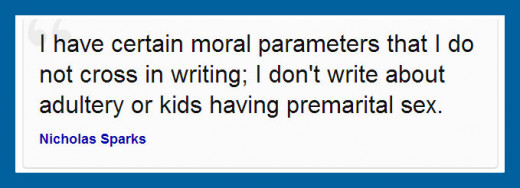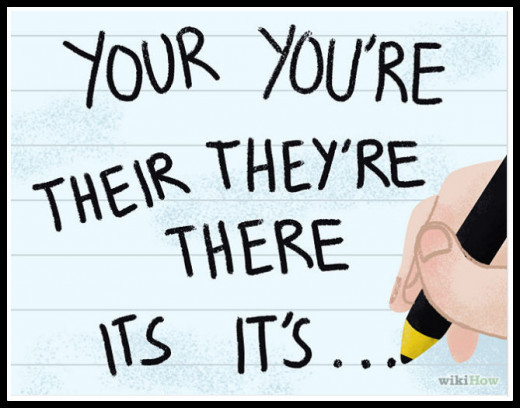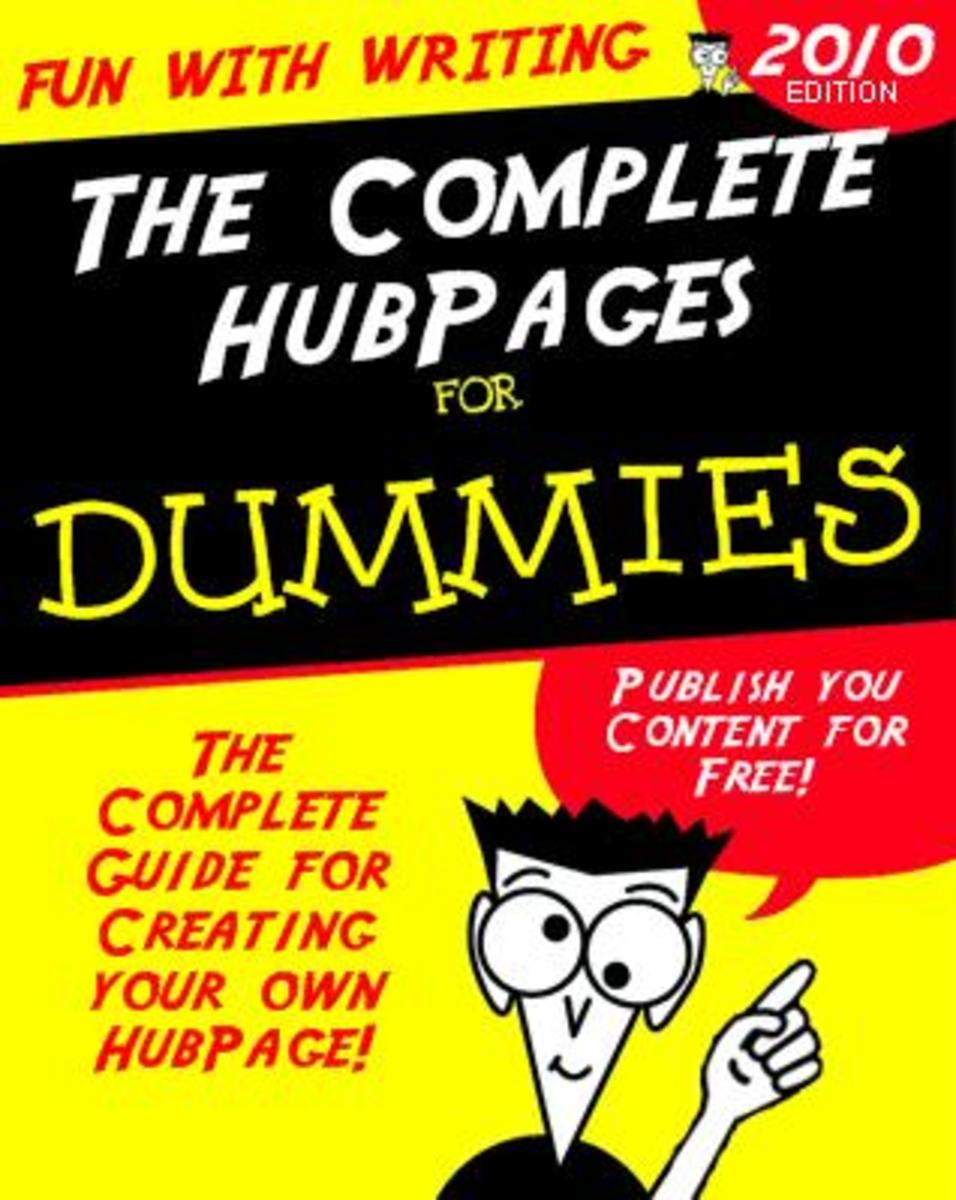How Do You Choose Your Book Topic?
Your Topic
Published January 16, 2014 by Mary McShane
You have heard it a gazillion times....Write what you know!
But how will you learn about other things if you only write about the topics you know?
If we all only wrote about what we know, there would be no growth for us as a writer. So how do you remedy that?
Learn something new. Take a topic (hopefully one that is interesting to you) and totally immerse yourself into learning all there is to know about it.
Now you have another topic to file under "Write what you know." But there is more involved in what it takes to choosing your topic to become a good writer.
Writing Advice: Write what you know
Learn as much by writing as by reading.
Lord Acton
How To Be A Good (or Better) Writer
Your Prescription:
- Read the kinds of books you wish you had written.
- Read until you are satisfied. For that day.
- Then begin again the next day and read some more.
- Continue until either senility kicks in or until death occurs. lol
All kidding aside, if you read the kinds of books you want to write and you will become the writer you want to be.
You are what you eat; you'll write what you read.
Writing Advice: Michael Connelly

Writing Advice: Nicholas Sparks
You learn by writing short stories. Keep writing short stories. The money’s in novels, but writing short stories keeps your writing lean and pointed.
-- Larry Niven
Helpful Resources
- Researching Your Story Topic
Tips on research and verifying sources. Videos with advice from famous authors. - Short Story Overview -- How to Write a Short Story
To write a short story successfully, a number of elements have to come into play. Read about each of these elements and learn how to employ them in your short stories. - Writing a Novel -- Advice on Writing a Novel
There's no one-size-fits-all approach, so here is advice from many writers on how to write a novel. - Writing The Next Bestseller!
Trying to fit writing time into everyday life? Here are some tips that might help along with advice from well-known writers.
Like, Love ... or Dislike, Hate
Referencing the Nicholas Sparks quote above, get into your comfort zone and set your parameters about subjects you consider taboo.
Once you like (or love) a subject or topic, it shows through your writing. Your story flows so much easier and your reader will identify with your like (or love), and the passion you have for your subject matter.
The adage, "Write what you know" should probably have an addendum "Write what you love or at least what you like."
On the flip side, if you don't like your topic or subject matter, it is probably best not to write about it because your dislike will also show through your writing.
It can't be helped.
The way you phrase some of your sentences, the development and dialogue of your characters, the settings you use ... all will show how you feel about your overall subject matter.
The reader will possibly pass you by the next time you publish, even if they like the pretty book cover or the provocative promotion blurb, because you left a less than stellar first impression. After all, there are many other author and book choices they could be reading.
Which brings me to my next point ...

All the words I use in my stories can be found in the dictionary—it’s just a matter of arranging them into the right sentences.
- Somerset Maugham
Planning: Audience and Topic
- Do you write for you?
- Do you write for a certain audience demographic?
- Do you choose your subject matter because it is a popular topic?
These questions appear on many websites as query questions for you to tap your inner self. You might answer the first question: I write for me because it is in my soul and it is what I want to do. That's all well and good, but that's not going to sell books.
1. Do you write only stories you would want to read? Or, do you gear your writing toward popular, trendy topics even though they may not be of much interest to you?
2. Do you feel that even though you don't like the subject matter, if you write and submit the type of books publishers are looking for (in line with current trends) that your work will have a better chance to be published?
I think the jury is still out on the second question.
On the first question, and only speaking for myself, I know if I don't particularly like a topic, and I have to write about it because it was assigned to me, I can't help it. It shows through my writing, either in tone or lack of pertinent information that a true lover of the genre would know. I suspect many other writers experience the same dilemma.
I don't set out to write about popular topics just to fashion a work dedicated solely to the topic.
- Example: to write a vampire story when I have no interest in vampires. The fact that I have no interest in reading or writing vampire stories will show through any work I offer. If hard pressed to take that type of assignment, I would educate myself just enough on how to write for the genre to satisfy the assignment, but again, my heart would not be in it.
However, I do write for a certain audience demographic. I think it is important to know WHO you are writing for because as you write your story, you can keep a picture of that demographic in your mind.
Examples:
- If you are writing children's books, keeping that age range in your mind will keep you from interjecting adult size words into your manuscript or veering off into situations or language that certainly does't belong in a children's book.
- If you are writing horror or suspense for older age brackets, this is the audience you need to keep in mind. You won't be able to get away with interjecting silly red herrings in your story because these are older and most likely hard core readers who want quality stories, not dead end clues or very simple clues that even a fifth grader could figure out.
That doesn't mean I turn up my nose at what is trending in the publishing world. I'm still not totally out of the game just because I'm not dedicating full length books to the trend.
If I see that a popular topic is trending and will be an asset in my current work in progress, I will add it as part of character's development - especially if it dresses up the story a little. What I'm hoping is the reader will identify with it so they'll stay interested enough to keep reading.
A popular trending topic or area could also be used in giving a character employment (past, present or future) in that trendy area which presents another facet of the character's development. That "just enough" studying I did will probably be all I need to give my character that background.
I may also choose to add it to my story just because it just fits well into the grand scheme of what I am writing about.
I'll end this section with advice about planning.
Know who you are writing for, so you can fashion the direction of your story topic accordingly.
When you get that far along, then you will need a organizational plan, because the book will not write itself without one. Every time you write a hub here on HubPages, you are using an organizational plan when you decide where you will place certain information. The HP capsules are helpful in that way. This site is an excellent training ground for any writer.
Just as you plan your hub article, your book should get the same type of planning and treatment.
For bigger projects, outlines, rough drafts, journals and storyboarding can make your life easier.
Books Will Survive: John Irving - Author of The World According To Garp
Get it down. Take chances. It may be bad, but it’s the only way you can do anything really good.
-- William Faulkner
Outlines or Rough Drafts
"Get your story written out as a rough draft or an outline" is among the advice given by many successful authors. It doesn't have to be perfect the first time out. That is what rewriting, editing and polishing are all about and that all comes after you have some product to work with.
This next video is from Stephen J Cannell, screenwriter, author and occasional actor, who died September 30, 2010. His daughter Chelsea has documented his advice and writing process in a wonderful You Tube library of over 60 titles.
While his videos have much good advice to impart, it was not feasible to center this hub around only his videos and still be able to share advice from other writers.
So, I encourage you to click "Watch on You Tube" (lower right corner of the video) and when you get there, after you watch the video, click on the Stephen Cannell name to view the entire library of titles.
Making An Outline

Make Lists
As silly as it might sound, making lists is a valuable tool in almost every area of life.
As an aside, I had to consult a new specialist recently and you know how it is when you go to a new doctor. You have to write out your medications and case history regarding illnesses and surgeries, etc. Now, I never have had a problem recalling this information before. In my mind, I know these things - mostly because it is a very short list.
But when push came to shove, that darn medical form made me draw a blank when it came to the new medications I am taking for Parkinson's Disease. I know what I take, but I could not work the name of the medication from the back of my brain all the way to the tip of the pen. Do you know when it came to me? When the doctor recited a list of popular medications and I picked it out from there. I now have a typewritten list of my medical history which stays in my purse in the event I need it for recall.
Lists also come in handy when constructing a resume, especially if you have been around the block with several employers for a few years. It is very easy to get the dates and employers out of order, or even skipped over altogether.
And so it is with our areas of expertise.
Write down your knowledgeable subjects. Do you really think you don't have an area of expertise?
If you make a list, you will learn all sorts of revelations about subjects you know very well. Before you know it, that list will be epic in length!
I find that making lists also helps me in character development and relationships, who crossed roads with who in what chapter and the types of clothes and colors used for description of characteristics and settings.
After I get my lists together, I make a diagram - a plot plan, if you will - and tack it up on my office wall for easy reference. There are storyboard apps and spreadsheets which are just as useful as my plot plan. My plot plan has a family tree, a plan of the town I am using as my setting, and where each character lives in that town in relation to my primary character. My plot plan is my answer to storyboarding.
This idea may not work for everyone, but it is what works for me.
Writing Advice: Training Yourself
Throwing stuff in the trash
Updated 3/23/2014. I had a thought about this video and wanted to share it with you. I was here replacing some videos because a couple of YouTube account holders closed their accounts, making all their videos null and void to anyone who is using them in their articles.
In the above video, Isabel talks about pages that may end up in the trash.
NEVER throw anything away.
A good idea you had can be fleeting, and you will forget it especially when you try very hard to recall it.
Once you write something in a certain way, if it is discarded, you may never recapture the wording just the same way again. And it will bug you to death because you can't find the wording that didn't seem so genius at the time, but now has possibilities.
I keep a bin of discarded story sheets ... stuff that deviated from my outline or edits, and often went out into Never-Never Land where it made no sense when read with the rest of my story, up to that point.
It doesn't mean it was bad. It just means it was bad for that story.
It may be salvageable for something else I will work on in the future. In fact, there may be a good premise in those discarded papers to start an outline for another story - using them as a starting point.
I paper clip them together for each story. I use one of Rob's size 15 shoe boxes, it is the perfect size. I tack a post it note on each clipped packet for which story they pertained to, because sometimes when I have 5 or 6 works in progress, I can get confused on which stack went with which story. And yes, I often have 5 or 6 projects going at the same time.
Once my story has been written, any one of those notes could become my next project.
So even though Isabel says in the video "for every good page you write, 20 end up in the trash," I'm sure she didn't mean that literally. Clip them, label them, and put them in a size 15 shoe box!
Any writer worth their salt NEVER throws anything away that could potentially be helpful in writing their next best selling novel.

Resource List
- Where Do Quotation Marks Belong?
Do you ever wonder how to use punctuation with quotation marks? Do they go before or after the period, before or after the comma? - Sample Writing Exercises - wikiHow
'Sample Writing Exercises.' Free from wikiHow. - Sample Grammar Exercises - wikiHow
'Sample Grammar Exercises' questions with answers provided.
Grammar
Keep up on proper usage of grammar. There is a link at the right for a grammar exercise (with answers) which might be helpful.
A fellow hubber wrote a hub about the correct placement of quotation marks. I was surprised to learn that there is a British version and an American versions. So check out "Where Do Quotation Marks Belong" and brush up. You'll be as surprised as I was about who is correct - The British or The Americans.
Thesaurus
Invest in a thesaurus (paper or online bookmark) because "he said" and "she said" gets old real fast.
Writing Advice: Mary Higgins Clark
More Advice & Quotes From Famous Authors
TV's Castle Gets Advice On Writer's Block From James Patterson & Stephen Cannell
The previous video about TV show Castle
Explaining the video
3/23/2014
Since I published this hub, two Hubpages readers have emailed me asking what this last video has to do with "Writer's Block." Considering no one else questioned it, I can only assume these two readers just didn't "get it." So I will attempt to explain.
I chose this video because it covers these important areas: 1) Writer's block, 2) constructive criticism, 3) positive and 4) negative feedback, 5) networking with fellow writers, and 6) solving a dilemma.
The video is an excerpt of the television program "Castle" and two of the guest stars are famous mystery writers. You may not recognize their faces, but you will most likely recognize their names. James Patterson (known for writing very short and fast paced chapters and for his detective character Alex Cross) and Stephen J Cannell (known mostly for television detective programs as creator, author, producer and director: esp. Magnum PI, The Rockford Files, A-Team and many others).
Skip to 0.33 on the video because the first 33 seconds are inconsequential and have little to do with the rest of the tape.
After 0.33, if you listen to the dialogue in the video and don't pay too much attention to the card game, you will "get it." Castle is preoccupied with a case he is working on with Detective Beckett, his partner, while playing their weekly card game. When they finally engage Castle in conversation and learn what is wrong, they let rip.
His fellow writers give Castle their feedback on what they didn't like in regard to a character in his last book, how he handled his character's demise and why and where they felt his story took a nose dive.
He then talks to them about a problem he is currently having with a character and he makes like it has to do with his present work in progress.
In the end of the video, a light bulb literally goes on over Castle's head and while the other authors/card players think they have given him a direction to go with his novel, he has actually made a connection to solve the murder case he is working on with Detective Beckett (the female cop featured at the start of the video).
The video was meant to show you that networking with other writers can yield you ideas and even solve a dilemma to get over a rough patch you are having in the progression of your book.
Sometimes talking about your plot, your story line, your character development or a character's demise can help you make some changes that will ultimately make your story a success.
I hope that helps to explain my reasons for including this video in this article.
Thank you for reading.
The Process of Writing
There is no right or wrong way when it comes to the process of writing.
- All of us can and do learn from each other.
- If you have advice or tips on your writing process that have worked for you and that you think would benefit other writers, please feel free to share them with readers of this hub.
Thank you.
© Mary McShane January 16, 2014

© 2014 Mary McShane








